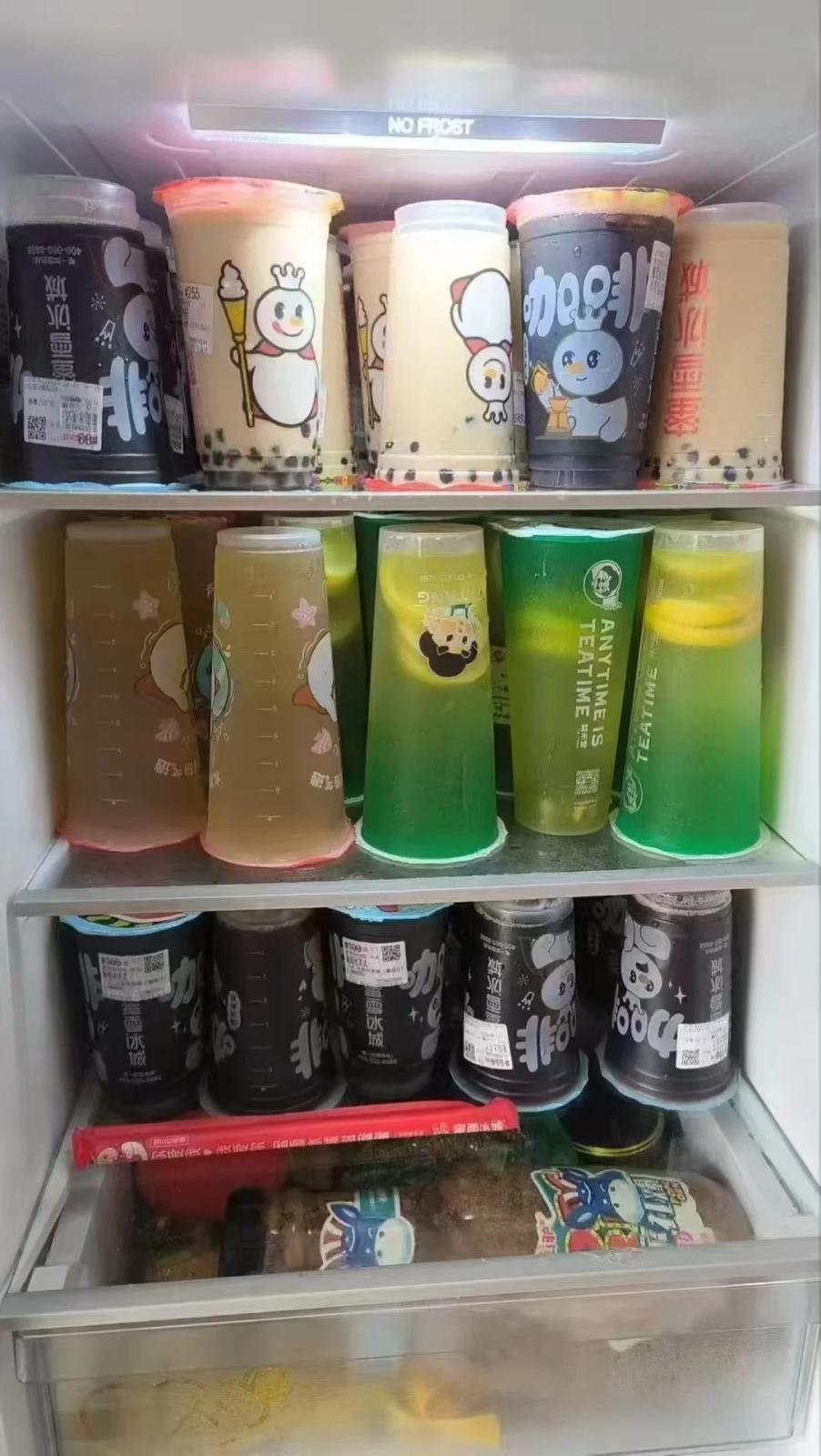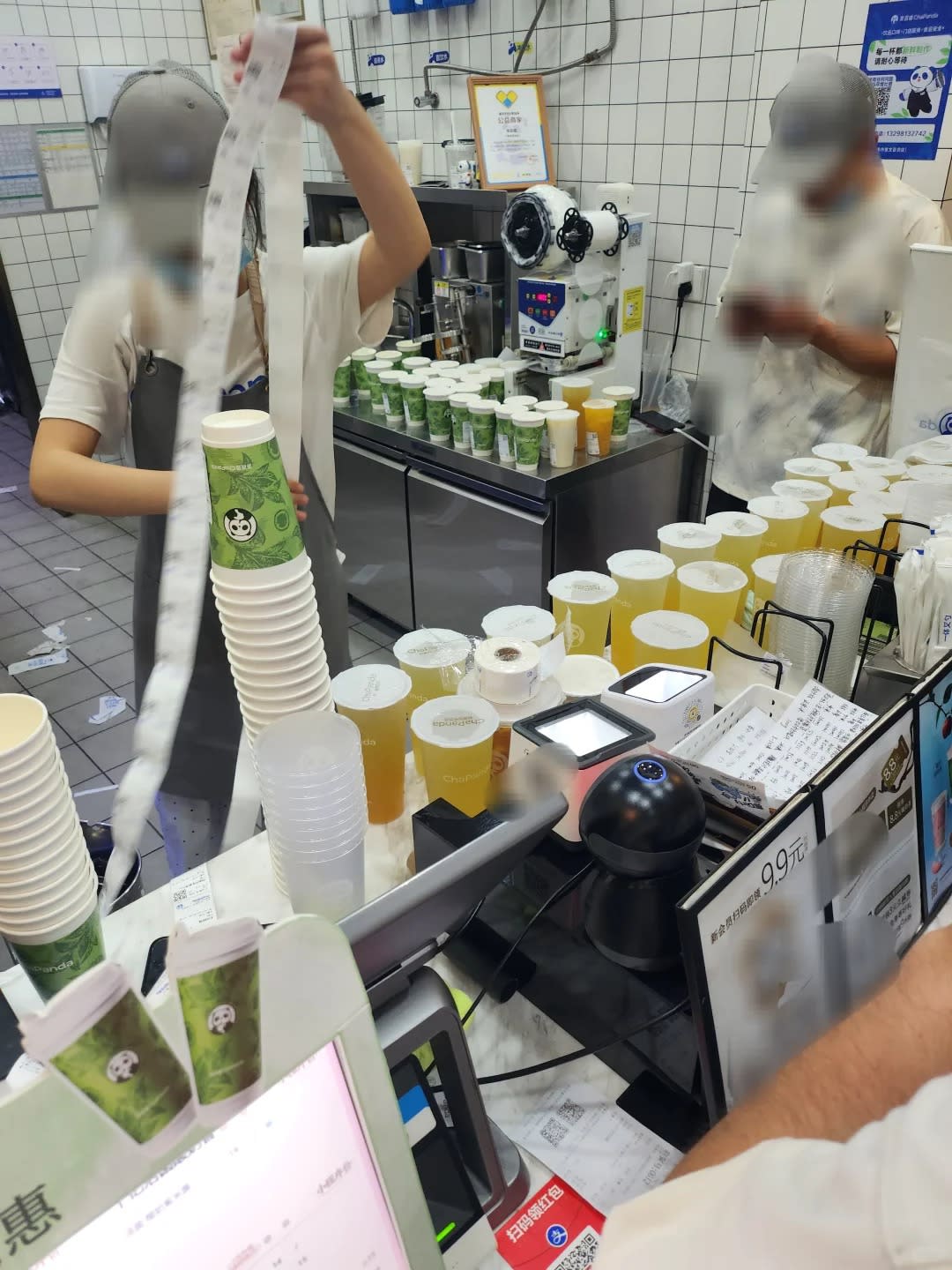‘0 yuan milk tea’: China’s food delivery price war hits fever pitch
BEIJING: Receipts piled on the floor as a label machine spat out an endless stream of orders at a ChaPanda outlet in Zhejiang.
“We are still 2,000 orders behind,” lamented a barista from the popular Chinese milk tea chain, posting a photo of the chaos on lifestyle platform Xiaohongshu.
“Today is a nightmare for milk tea shops,” added the user, known online as ChaPanda Working Diary, in a post on Sunday (Jul 6).
That outlet was just one of many food and beverage shops nationwide swamped over the weekend as China’s food delivery price war hit fever pitch.
A wave of deep discounts from leading platforms sent orders skyrocketing, overwhelming merchants and even briefly crashing a delivery app.
It marks a fresh escalation in an increasingly fierce battle for market share - a cutthroat contest that has drawn growing concern and scrutiny from the government.
DELIVERING DEEP DISCOUNTS
Major food delivery players such as Meituan, Alibaba’s Taobao Flash Sale and Ele.me, as well as JD.com, unveiled generous vouchers on Saturday to kickstart their summer campaigns.
Meituan collaborated with several beverage brands, including Mixue, ChaPanda and Cotti Coffee, and rolled out coupons for “0 yuan milk tea”.
Taobao Flash Sale released coupons promising “20 yuan (US$2.79) off for orders above 25 yuan”, according to the Shanghai-based news outlet IT Times.
The rock-bottom prices sparked a weekend buying frenzy as eager customers cashed in on the bargains. Some filled their refrigerators with beverages while others capitalised on the situation to place large advance orders.

Taobao Flash Sale and Ele.me jointly announced on Monday that their daily orders had exceeded 80 million, with more than 13 million from non-food orders.
Meanwhile, Meituan reported more than 120 million same-day orders on Saturday, a record high. Food delivery orders made up the lion’s share, exceeding 100 million.
Even as customers enjoyed the steep discounts, F&B workers buckled under the weight of surging orders.
At popular milk tea chain outlets - many of which dangled the “0 yuan milk tea” promotion - overwhelmed employees documented the carnage on the ground and posted the footage online.
As the name suggests, the promotion by Meituan allowed customers to get milk tea for 0 yuan - effectively free - if they opted for self-pickup at the store.
One store manager at a ChaPanda outlet in Shanghai posted a photo showing long reams of order receipts taped to a wall.
“When will this nonsense end? The orders are booming, we can’t win!” she wrote on Xiaohongshu.

On their end, some customers also expressed their sympathies.
“Can you imagine how helpless and overwhelmed (the) workers are?” said one Xiaohongshu user, Yu Dao, as she recounted her experience at a ChaPanda outlet in Henan on Sunday.
Yu described the scene as “chaotic” when she turned up to collect her order.
“The outlet was crowded and the ordering machines kept churning out orders,” she said.
“Customers were jostling … the delivery riders kept complaining how they were almost late, yet they couldn’t find the right order numbers,” she said.
“I had more than 400 orders in front of me; the poor workers must have felt really hopeless.”
The sheer volume of orders flooding in from customers also briefly caused the Meituan app to crash. In a post published on microblogging site Weibo on Saturday, Meituan said its servers “triggered a rate-limiting protection mechanism” due to the volume of orders “exceeding historical peaks”.
Meituan added that as some users experienced “brief service disruptions”, the coupons that expired during the period would remain valid for an additional day.
DISHING OUT CUTTHROAT COMPETITION
China’s food delivery sector has long been highly competitive, with platforms locked in a constant battle for users, merchants and market share. Meituan is the dominant platform, followed by rival Ele.me.
But the arena has been heating up.
In February, JD.com waded into the fray with its food delivery arm JD Takeaway, enticing restaurants with promises of "zero commissions all year round" and promising speedy delivery to customers within an hour.
Alibaba upped the ante in May, bringing merchants from its food delivery arm Ele.me onto its main shopping app Taobao.
Promotions such as the latest weekend vouchers are an immediate boon to customers as they get to enjoy the steep discounts, said Chen Liteng, an analyst at e-commerce research centre 100EC, as reported by local news site Sixth Tone.
At the same time, issues lie further down the road. Once the subsidies vanish, order volumes may plummet and overconsumption could lead to waste, he warned.
The intensifying back-and-forth in the food delivery arena has already raised government eyebrows.
In May, China’s market regulator joined four other government bodies to summon food delivery providers such as Meituan, JD.com and Ele.me.
The companies were asked to compete fairly, as well as to collaborate in safeguarding the rights of consumers, merchants and delivery riders, according to a report by the state-run Global Times.
The national market regulator also stressed the need to promote the regulated and sustainable growth of the platform economy.
Disclaimer: Investing carries risk. This is not financial advice. The above content should not be regarded as an offer, recommendation, or solicitation on acquiring or disposing of any financial products, any associated discussions, comments, or posts by author or other users should not be considered as such either. It is solely for general information purpose only, which does not consider your own investment objectives, financial situations or needs. TTM assumes no responsibility or warranty for the accuracy and completeness of the information, investors should do their own research and may seek professional advice before investing.
Most Discussed
- 1
- 2
- 3
- 4
- 5
- 6
- 7
- 8
- 9
- 10